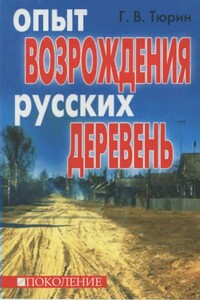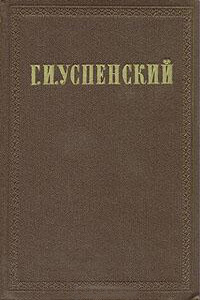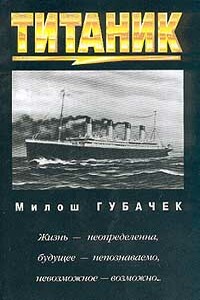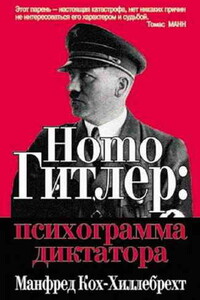The Boy Scouts In Russia - [33]
They approached the car in a death-like silence. It was still where Fred had left it. There was a little delay in the start. Both Fred and Boris had driven cars, but they were not familiar with this one, and it seemed a good idea to learn the controls before they started. But in a few moments they were off. The car rode easily, and the motor was very powerful. It was a silent one, too, considering its great power. Fred took the wheel first.
"We can take it in turns," he said. "Get some sleep, if you can, Boris. I'll rouse you if there is any need of that. And I'll be glad to rest myself, after a time. Just now I'm too excited to sleep, even if there were no especial reason for keeping awake."
There was something so wonderful, so weird that it was almost ghostly, about that ride in its beginning. Behind them was the din of the heavy fighting between them and Gumbinnen. The sky was streaked with the flashes of searchlights, and the vibration of the cannon beat against their ears incessantly. Yet the road before them, as it lay like a white ribbon in the path of the great headlight, was absolutely empty. They passed houses, went through villages. And in none of the houses was there a light or a sign of life. The whole countryside had been abandoned.
"It reminds me of things I've read about the plague in olden times," thought Fred. "People used to run away like that then, and leave a dead countryside behind them. It would almost look more natural if there were signs of fighting."
There were to be plenty all about here soon. But that night there was nothing, save the inferno of noise and the dazzling points of light in the sky behind them, to suggest anything save the deepest peace. Grain stood in some of the fields. In others, where the harvesting had begun, there were reaping machines. But despite the noise, there was a strange and unearthly silence. Fred had driven at night through lonely country before, and he could remember the way dogs at almost every house had burst into furious barking as the car approached. Now there were no dogs! It was a trifling thing to think of now, but just then it seemed to Fred that the absence of the dogs meant even more than the dark, silent houses themselves.
The houses did look as if their owners might be asleep within, but the dogs would have barked their alarm. And so that came to be the symbol of the flight of the people to him.
They had many miles to go. After a couple of hours Fred changed seats with Boris, and for a time dozed, though he scarcely slept. However, he did get a good rest, and when they came near to the stretch of road that Ivan had told them would mark the crisis of the trip, both boys were in good condition for the test. They slowed down at the sound of an engine's whistle, the first nearby noise that had come to their ears since they had left the parsonage. It startled them tremendously at first, but then they remembered Ivan's warning.
"There is one place where, for about four miles, the road runs very close to the railway," he had said. "The Germans will have patrols all along the railway line, but there is no reason why they should pay any attention to you. Be watchful-that is the vital thing. And especially so when you begin to descend a long hill. At the bottom of that hill the railway crosses your road, and that culvert will be watched with especial care. After that you will find the way clear, for our nearest outposts should not be more than a mile or so beyond the railway there. We would have seized the line before, except that until we had straightened our front in that quarter it would have been useless to do it."
The whistle that they heard warned them that they were getting near to this dangerous stretch of road, and in a few moments the sight of a train, sparks flying from the smokestack of the engine, gave them visual proof as well. Then for a time they ran along parallel with the tracks. Fires were burning along the railway at intervals of about a hundred and fifty yards, and at times, in the firelight, they could see a dark figure moving slowly.
"Heaven knows what this bugle means!" said Fred, as they drew into line with the tracks. "But if we sound it they may make up their minds that we're all right-and I'm not anxious for them to get curious about us."
So he sounded the bugle from time to time. They aroused no curiosity. Plainly these sentries thought there was nothing strange about the passage of a military automobile, nor, in fact, was there. It was not likely that they would know enough of the general disposition of the German army to speculate as to what officers might be doing hereabout.
"Here we are! We're beginning to dip," said Boris, after a time. "The culvert Ivan spoke of must be at the bottom of this hill. The road gets away from the railway again after that, and when we have passed there we ought to be all right."
"There's just one thing," said Fred, with a frown. "They must know just as well as Ivan that the Russian outposts lie not far beyond them. Won't they think it strange for us to be going full speed toward the Russian lines this way?"

Плачевная ситуация в российских деревнях известна всем. После развала масштабной системы государственного планирования исчезли десятки и сотни тысяч хозяйств, произошел массовый отток населения из сельских районов, были разворованы последние ценности. Исправление ситуации невозможно без эффективного самоуправления в провинции.Организованный в 1997 году Институт общественных и гуманитарных инициатив (ИОГИ) поставил перед собой цель возрождения сельских районов Архангельской области и добился уникальных результатов.

В настоящее издание включены все основные художественные и публицистические циклы произведений Г. И. Успенского, а также большинство отдельных очерков и рассказов писателя.

В ночь с 14 на 15 апреля 1912 года гигантское судно «Титаник» увлекло в ледяную бездну 1500 человек. Об этой одной из крупнейших в мире морских катастроф снято более десятка кинофильмов, написано около 50 книг, опубликовано шесть сборников стихов и две пьесы.Предлагаемая книга о «Титанике» является, по мнению критиков, лучшим и наиболее полным изданием на эту тему в мировой литературе. Ее автора отличает блестящее знание предмета и эпохи, а также тщательность и обстоятельность анализа событий, связанных с гибелью «непотопляемого плавучего дворца».

До сих пор историки многого не знают о Гитлере. Каковы были мотивы его мыслей и поступков? На чем основана легенда о его громадных знаниях и сверхчеловеческих способностях влиять на людей? Автор этой книги, немецкий профессор, в результате долгих и кропотливых исследований создал психограмму человека, возглавлявшего III рейх.

В настоящей книге Конан Дойл - автор несколько необычных для читателя сюжетов. В первой части он глубоко анализирует произведения наиболее талантливых, с его точки зрения, писателей, как бы открывая "волшебную дверь" и увлекая в их творческую лабораторию. Во второй части книги читатель попадает в мистический мир, представленный, тем не менее, так живо и реально, что создается ощущение, будто описанные удивительные события происходят наяву.

В книге рассказывается история главного героя, который сталкивается с различными проблемами и препятствиями на протяжении всего своего путешествия. По пути он встречает множество второстепенных персонажей, которые играют важные роли в истории. Благодаря опыту главного героя книга исследует такие темы, как любовь, потеря, надежда и стойкость. По мере того, как главный герой преодолевает свои трудности, он усваивает ценные уроки жизни и растет как личность.